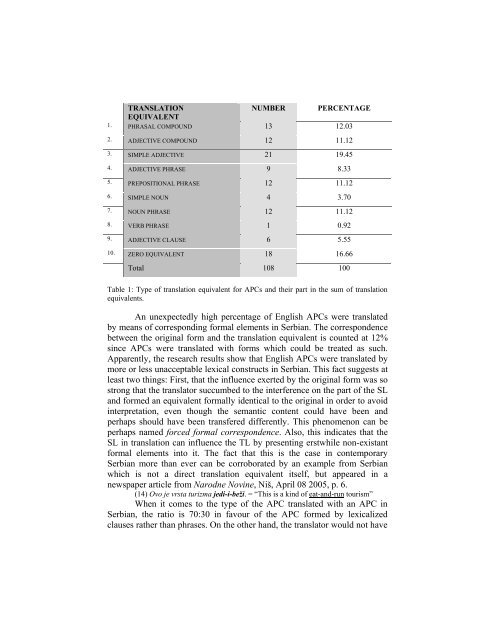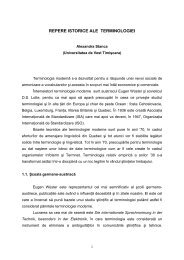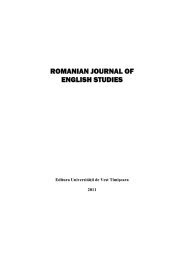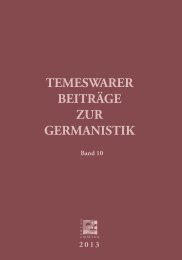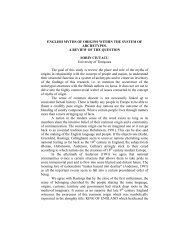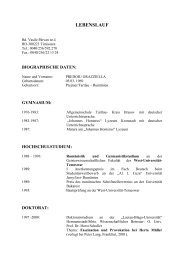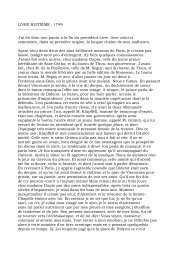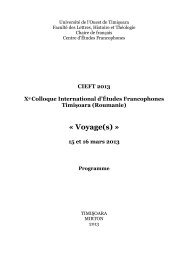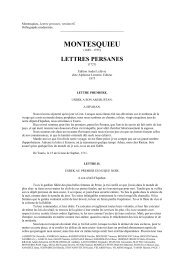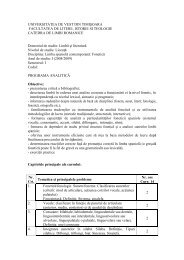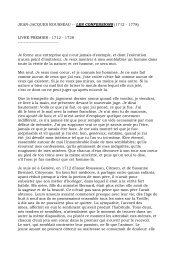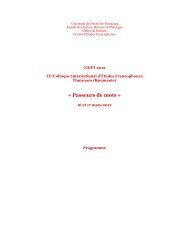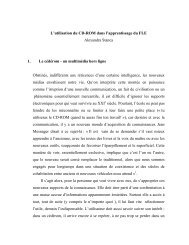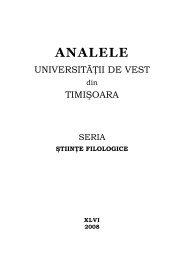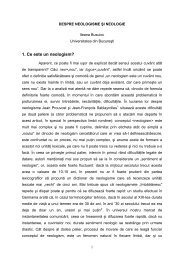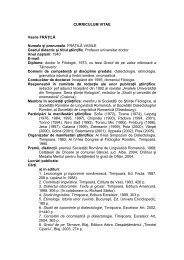TRANSLATION AND MEANING: A CULTURAL- COGNITIVE ...
TRANSLATION AND MEANING: A CULTURAL- COGNITIVE ...
TRANSLATION AND MEANING: A CULTURAL- COGNITIVE ...
Create successful ePaper yourself
Turn your PDF publications into a flip-book with our unique Google optimized e-Paper software.
<strong>TRANSLATION</strong><br />
EQUIVALENT<br />
NUMBER PERCENTAGE<br />
1. PHRASAL COMPOUND 13 12.03<br />
2. ADJECTIVE COMPOUND 12 11.12<br />
3. SIMPLE ADJECTIVE 21 19.45<br />
4. ADJECTIVE PHRASE 9 8.33<br />
5. PREPOSITIONAL PHRASE 12 11.12<br />
6. SIMPLE NOUN 4 3.70<br />
7. NOUN PHRASE 12 11.12<br />
8. VERB PHRASE 1 0.92<br />
9. ADJECTIVE CLAUSE 6 5.55<br />
10. ZERO EQUIVALENT 18 16.66<br />
Total 108 100<br />
Table 1: Type of translation equivalent for APCs and their part in the sum of translation<br />
equivalents.<br />
An unexpectedly high percentage of English APCs were translated<br />
by means of corresponding formal elements in Serbian. The correspondence<br />
between the original form and the translation equivalent is counted at 12%<br />
since APCs were translated with forms which could be treated as such.<br />
Apparently, the research results show that English APCs were translated by<br />
more or less unacceptable lexical constructs in Serbian. This fact suggests at<br />
least two things: First, that the influence exerted by the original form was so<br />
strong that the translator succumbed to the interference on the part of the SL<br />
and formed an equivalent formally identical to the original in order to avoid<br />
interpretation, even though the semantic content could have been and<br />
perhaps should have been transfered differently. This phenomenon can be<br />
perhaps named forced formal correspondence. Also, this indicates that the<br />
SL in translation can influence the TL by presenting erstwhile non-existant<br />
formal elements into it. The fact that this is the case in contemporary<br />
Serbian more than ever can be corroborated by an example from Serbian<br />
which is not a direct translation equivalent itself, but appeared in a<br />
newspaper article from Narodne Novine, Niš, April 08 2005, p. 6.<br />
(14) Ovo je vrsta turizma jedi-i-beži. = “This is a kind of eat-and-run tourism”<br />
When it comes to the type of the APC translated with an APC in<br />
Serbian, the ratio is 70:30 in favour of the APC formed by lexicalized<br />
clauses rather than phrases. On the other hand, the translator would not have


